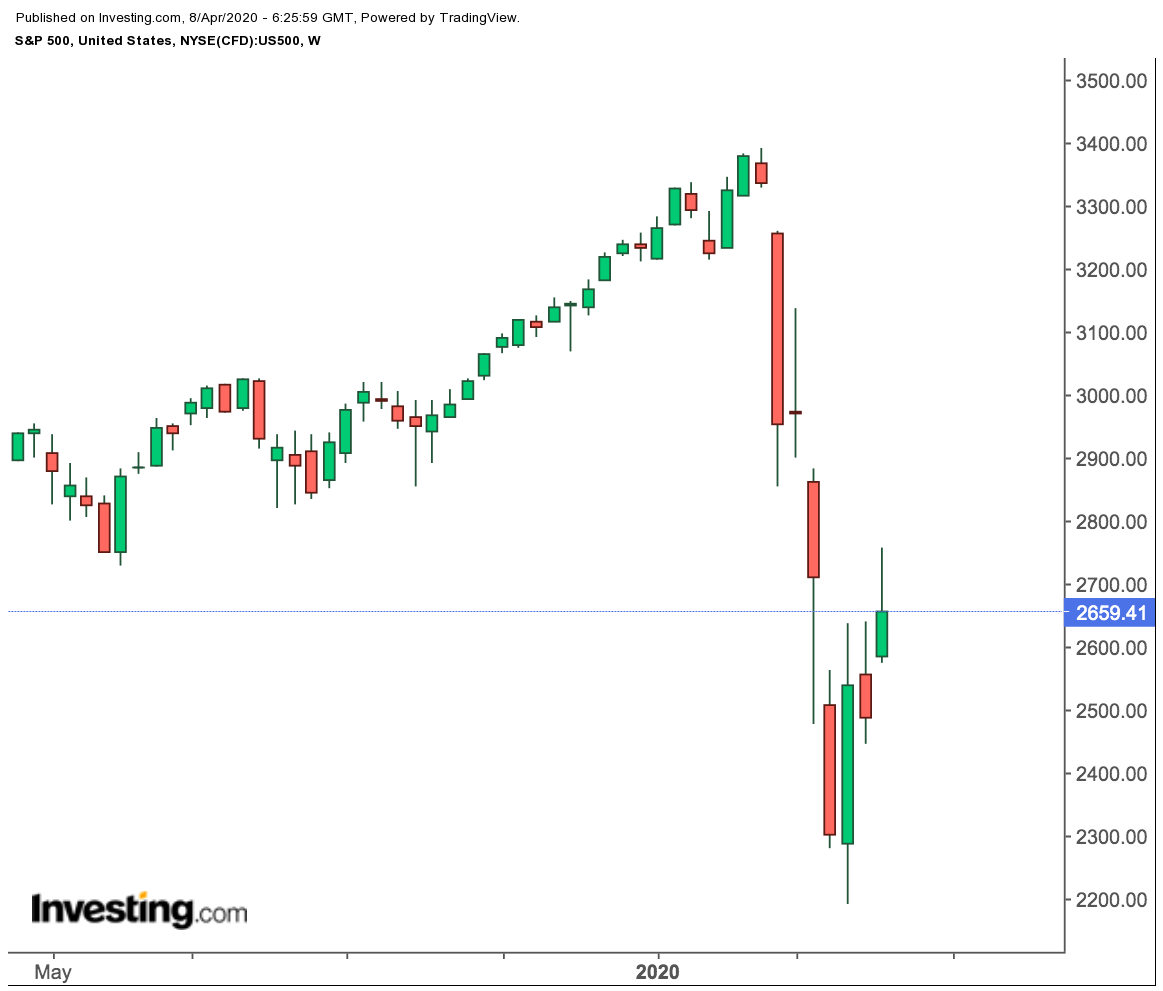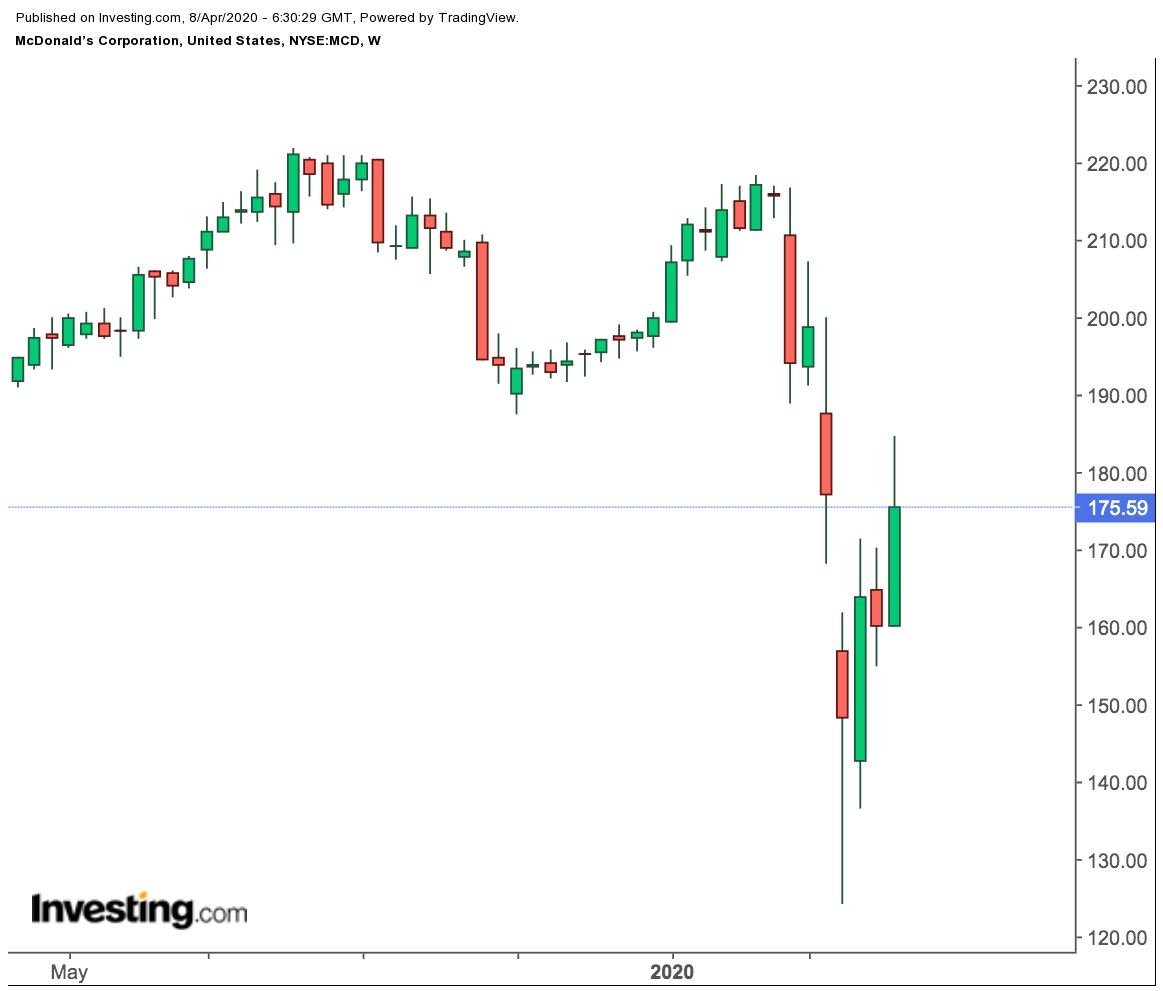Market predictions are all over the place these days. Many leading analysts have quite divergent views about the future when the world is struggling to contain the worst pandemic of our times.
Goldman Sachs’ chief equity strategist David Kostin has warned investors about getting too excited about the recent rally which pushed the S&P 500 more than 20% higher from the March low of $2191.86.
“Risk to the downside is greater than the opportunity to the upside from this point where we stand today,” Kostin told CNBC’s “Squawk on the Street” yesterday. “I would just remind you that in 2008 in the fourth quarter there were many different rallies, I call them bear market rallies, some of which jumped almost 20% a couple of times — but the market did not bottom until March of 2009.”
And there are reasons to believe that the S&P 500’s bounce could be short-lived. Investors have yet to embrace the most negative data from the coronavirus-related shock. The economy is most likely already in a deep recession, while companies are facing very grim prospects when there is no clear path to recovery.
Optimists on the other hand see strong evidence that the worst is over and the bottom has been reached. They are getting clues from the coronavirus cases in the U.S. and Europe that they see peaking sooner than expected.
“We believe we’ve seen a peak in new case growth in the U.S. 3-4 days ago, and then deaths will peak in about a week, so we look for a limited reopening of the economy in 1-2 weeks,” JPMorgan’s Marko Kolanovic said in a note to clients, after predicting a couple of weeks ago that stocks have bottomed after plunging more than 30% from the 52-week high.
Dividend-Growth Stocks
Of course, time will tell who's correct, but we feel the safest strategy for investors would be to focus on stocks that are likely to ride through both short- and long-term weakness.
One tested strategy to take advantage of this massive readjustment in markets is to buy the shares of companies that are cash rich, have a history of dealing with recessions and pay regular dividends. In other words, buying solid dividend-growth stocks is one of the safest ways to play this weakness for risk-averse investors.
The companies to focus in this category are those which have at least boosted their dividends in each of the last 10 years, the ones known as “dividend aristocrats.”
Let’s take the example of McDonald’s Corporation (NYSE:MCD). On the surface, it probably doesn't seem to be a good time to look favorably at the largest fast food chain in the world when consumers are in lockdowns and the economy is in freeze mode.
MCD stock is down more than 11% this year to close yesterday's session at $175.59. This weakness opens a good entry for income investors who were waiting on the sidelines. The most important factor to look at when picking a dividend stock is stability in income payments. The company has raised its payout each and every year since 1976, when it first started paying dividends.
Another candidate in this group is Johnson & Johnson (NYSE:JNJ), the world’s largest maker of both consumer and pharmaceutical health care products. The company has raised its dividend every year for the past 57 years, with at least 50 consecutive years of annual dividend increases. Shares of J&J are down about 6% this year, closing at $137. 48 yesterday.
Walt Disney Company (NYSE:DIS), one of the hardest-hit stocks in this downturn, is another reliable dividend name. The coronavirus shutdown globally has deprived the operator of popular theme parks from one of its biggest revenue-generating avenues. But Disney has a diversified business with a solid cash position to continue rewarding its investors during this period of weakness that won’t last forever. The shares have dropped 30% since the start of the year, to close yesterday's session at $101.24.
Bottom Line
Dividend growth stocks could outperform the broader market if we go into deep recession in 2020. Diversifying your portfolio with defensive stocks that pay regularly growing dividends is always a good strategy in times of economic turmoil. They are well-managed, global companies with the means and strength to emerge resilient from their current challenges.
